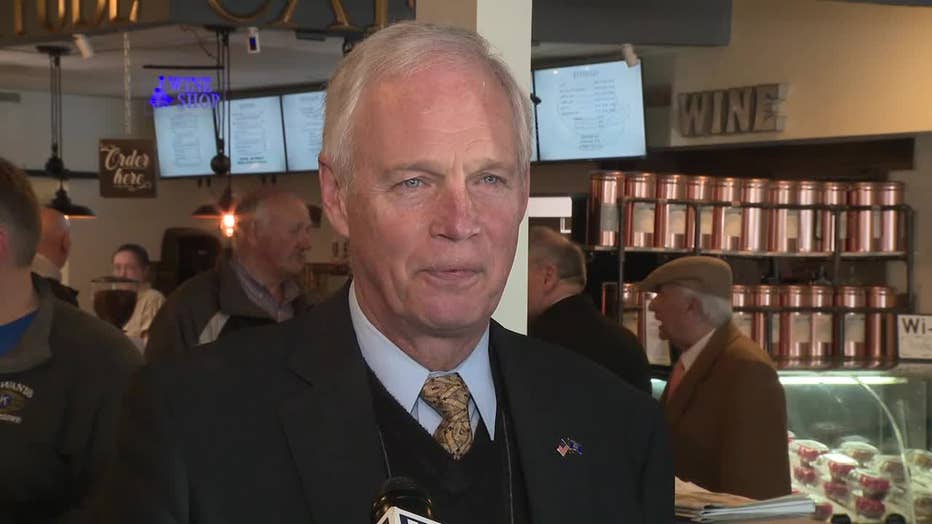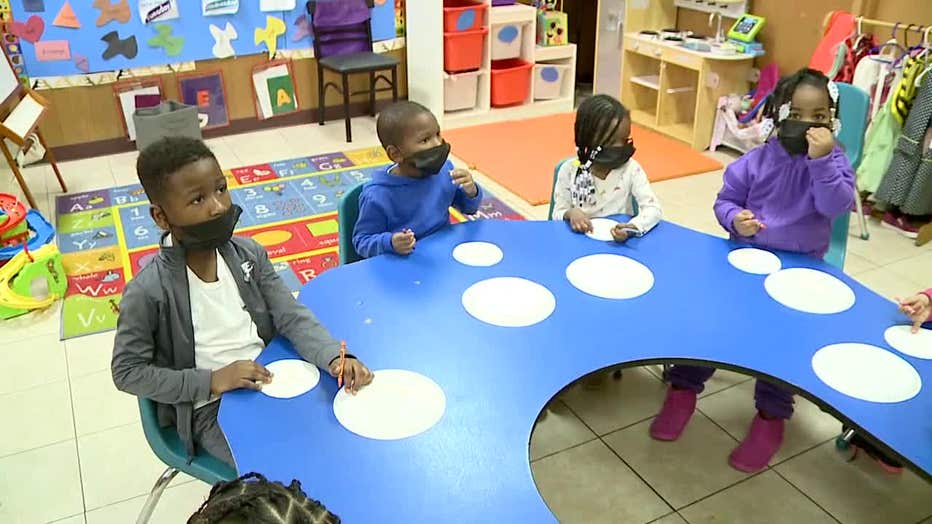Ron Johnson defends child care comments: 'I don't think it's controversial'

Ron Johnson defends child care comments: 'I don't think it's controversial'
U.S. Sen. Ron Johnson (R-Wisconsin) on Friday defended his statement that it is not society's responsibility to take care of other people's children.
GERMANTOWN, Wis. - U.S. Sen. Ron Johnson (R-Wisconsin) on Friday defended his statement that it is not society's responsibility to take care of other people's children.
With control of Congress on the line, he is making the rounds. The senator spoke to business leaders at Latitude Café in Germantown, defending the comment he made in La Crosse on Tuesday.
Democrats instantly pounced on the Republican's original words, and the question that sparked the debate was if there was a fix for families who are not able to find or afford child care.
SIGN UP TODAY: Get daily headlines, breaking news emails from FOX6 News
Johnson told FOX6 News that the fix is to focus on economic growth to get the government out of the way.
"Of course, I believe that society should help people that can't help themselves," Johnson said.

U.S. Sen. Ron Johnson (R-Wisconsin)
"I don't think it's controversial, my belief that it's the most important decision anybody would make to become a parent," said Johnson. "I don't think it's controversial, when I believe that parents should primarily be responsible for raising their children. I don't think it should be controversial when we’re $29 trillion in debt that I have a concern about another federal government program that further mortgages our kids’ future when we're looking at 7% inflation right now."
Democrats' stalled Build Back Better plan would open up child care subsidies to most Wisconsin families.
"In the days now of government intrusion into our lives, the indoctrination of our children and things like critical race theory," Johnson said, "I don’t think it should be controversial that parents ought to be a little leery of the federal government getting a little more involved – because anytime you get funds from the federal government, there’s going to be strings attached."
FREE DOWNLOAD: Get breaking news alerts in the FOX6 News app for iOS or Android.
The Wisconsin Early Childhood Association's Ruth Schmidt said it would be a wise investment.
"Child care is sort of the backbone of Wisconsin’s economy. It’s the backbone of our country’s economy. It’s kind of what allows parents to work," said Schmidt.
Schmidt said high-quality early childhood education produces long-term results – like higher graduation rates, lower teen pregnancy rates and reduced incarceration rates.
"For me, putting money in at the front end is probably the smartest thing we could be doing as a country, to save us money on the opposite end," Schmidt said.

On Jan. 1, 2020, Wisconsin had 4,444 child care providers. Wisconsin's Department of Children and Families reports about 40% closed in March 2020, but now the state has 4,409 providers – almost back to pre-pandemic numbers.
The state said, while the number of providers is lower, capacity has actually increased by 4.6%; there were 249,970 slots on March 1, 2020, compared to 261,552 now. However, the Wisconsin Early Childhood Association said it does not know how many kids are currently in care.
The association said many families are priced out or cannot find an opening, while care centers struggle to hire workers with an average pay of $12 per hour. Schmidt said: "Close to 40% of programs in Wisconsin have longer wait lists than usual, 17% of programs in Wisconsin are reporting a likelihood of needing to close in the next six months, and again, three-fourths of programs are looking for staff."
Wisconsin has given various grants, including $589 million going to providers monthly through 2023, which can be used to stay open and recruit and keep workers.
Featured
Roundy's hiring for e-commerce jobs; events at all stores Saturday
Roundy's is looking to hire 300 e-commerce associates for their Pick ‘n Save and Metro Market stores throughout the state of Wisconsin.
Featured
Milwaukee Brewers 2022 promotional schedule unveiled
The Milwaukee Brewers release the full promotional schedule for the 2022 season.
Featured
Evers: $150 to Wisconsin residents part of election year plan
Gov. Tony Evers unveiled an election year plan that would send $150 to every Wisconsin resident, bolster funding for K-12 schools and help defray child care costs.




